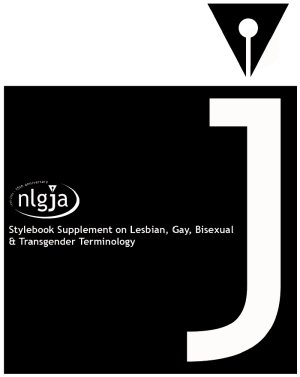 Former baseball star Roberto Alomar was sued yesterday for $15 million by an ex-girlfriend alleging that he had unprotected sex with her without telling her that he was HIV positive. The suit also alleges that he has “full-blown AIDS.”
Former baseball star Roberto Alomar was sued yesterday for $15 million by an ex-girlfriend alleging that he had unprotected sex with her without telling her that he was HIV positive. The suit also alleges that he has “full-blown AIDS.” It’s too soon to know the facts in the Alomar case, although I have no doubt that they will come out. However, it’s not too soon to declare that the phrase “full-blown AIDS” without quotes around it has made an unwelcome comeback. It’s used without quotes from the original Daily News article to other traditional media sources such as The New York Times, CNN and USA Today. Quotes make all the difference.
The Associated Press (AP) has a stylebook that most journalists abide by to determine proper usage of certain words and phrases. The National Lesbian & Gay Journalists Association (NLGJA) has a supplement to the AP stylebook. The NLGJA stylebook supplement focuses on LGBT-related terminology, but it also includes a few HIV-related entries.
Here’s the NLGJA stylebook supplement entry for AIDS:
AIDS: Acquired Immune Deficiency Syndrome, a medical condition that compromises the human immune system, leaving the body defenseless against opportunistic infections. Some medical treatments can slow the rate at which the immune system is weakened. Individuals may be HIV-positive but not have AIDS. Do not use the term ?full-blown AIDS?; it is appropriate to simply say that HIV-positive people have developed AIDS or that their immune system is failing. Avoid ?AIDS sufferer? and ?AIDS victim.? Use ?people with AIDS? or, if the context is medical, ?AIDS patients.?
The NLGJA clearly recommends that “full-blown AIDS” not be used. The reason is not mentioned, but I believe that it has to do with the fact that “full-blown AIDS” has become a phrase loaded with stigma. I have two other reasons to object to the phrase, one serious and one silly.
As with “HIV virus” (which is completely redundant because “virus” is already part of the “HIV” acronym), the term “full-blown AIDS” is redundant. At best, the phrase was an attempt to make a distinction between being HIV-positive without symptoms and being HIV-positive with AIDS-defining symptoms before such a distinction was understood by most people. Now that the distinction between HIV and AIDS is understood by most people, I believe that we can just say “AIDS” and leave it at that.
The words “full-blown” get caught in my mouth, too many letter Ls. To my ears, “full-blown AIDS” is an inelegant phrase.
I realize that the phrase is being used in the media because it was used in the suit against Alomar. Nonetheless, “full-blown AIDS” should at least be in quotes. Adding quotes acknowledges it as a phrase without necessarily granting it the legitimacy that naked phrases possess.







8 Comments
8 Comments